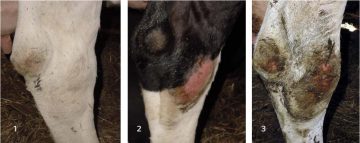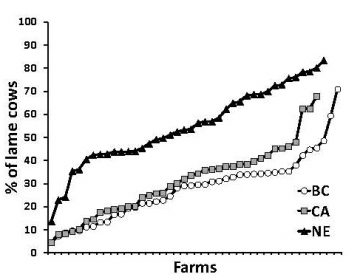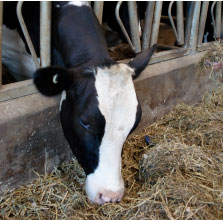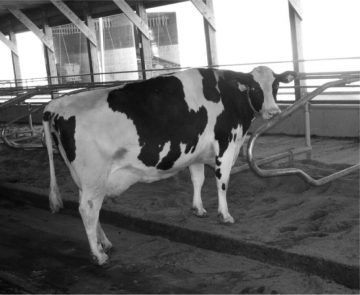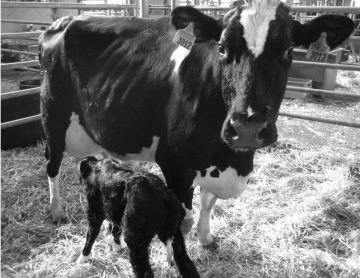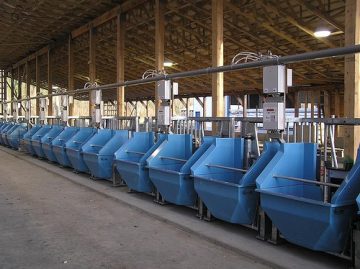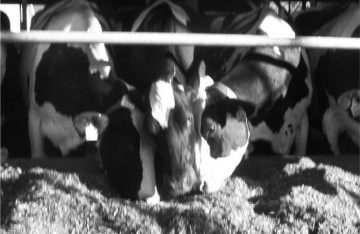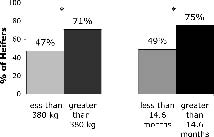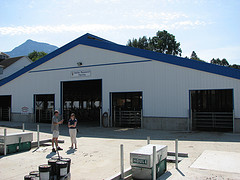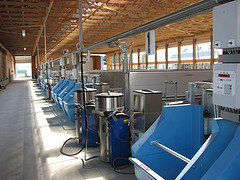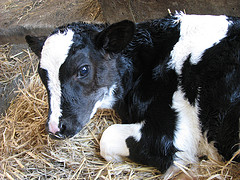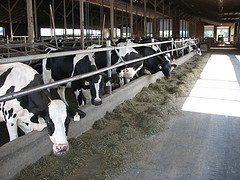August 20, 2013
Housing systems that cause disease or injuries to animals are clearly undesirable. Injury and disease compromise dairy cow welfare and can reduce longevity and production. Lameness, mastitis and transition cow diseases are now widely recognized as serious animal welfare and production issues in the dairy industry. Skin injuries on dairy cows should raise similar concerns […]
Posted in 2013, Research Reports | Tagged with
July 19, 2013
Producers spend millions of dollars building indoor housing for dairy cattle with the aim of providing a comfortable environment for their animals. Unfortunately, this housing does not always function well from the perspective of the cow – poorly designed and maintained facilities can cause injuries and increase the risk of lameness. Lameness is now widely […]
Posted in 2013, Research Reports | Tagged with deep-bedding, lameness
November 1, 2012
Why this matters… A total mixed ration (TMR) should provide a nutritionally balanced diet with all nutrients that cattle need to grow and function well. However, on farms the quality of the TMR may vary between days (in relation to inputs and mixing), within days (due to sorting by cows or environmental exposure), and along the feed bunk (due […]
Posted in 2012, Research Reports | Tagged with
February 1, 2012
Lameness is the number one animal welfare issue facing the North American dairy industry. Lameness is painful, and cases can last from weeks to months. Severe cases that do not improve can result in the cow being culled from the herd. Cows experiencing pain are less likely to show signs of estrus, such as mounting […]
Posted in 2012, Research Reports | Tagged with
January 1, 2012
Metritis is a common and costly disease that affects dairy cows during the early postpartum period. (Figure 1). Researchers at the UBC Dairy Centre have completed a number of studies investigating the relationships between health and behaviour of cows during the transition period and have found that both feeding behaviour and dry matter intake (DMI) can be used in the early detection of […]
Posted in 2012, Research Reports | Tagged with Metritis, milk, vol 12-1
November 6, 2011
Replacement heifers are the future of the dairy herd, but very little research is focused on these animals. Researchers at the University of British Columbia’s Dairy Education and Research Centre have recently completed three experiments designed to determine the effects of different methods of feeding weaned 5-8 month old Holstein heifers. For all three experiments, […]
Posted in 2011, Research Reports | Tagged with devries, von keyserlingk
August 1, 2011
Dairy cows are often grouped according to age, days in milk, feed requirements and health status. To create these groupings cows, are often moved to new groups four or more times per lactation. At each regrouping, cows are mixed with unfamiliar herd mates resulting in changes in group composition and dynamics. In the new group […]
Posted in 2011, Research Reports | Tagged with schirmann, vol 11-1, von keyserlingk
June 1, 2010
In response to poor estrus detection and low fertility in lactating dairy cows, reproductive management tools such as estrus synchronization programs are increasingly used on dairy farms. One tool, the Ovsynch timed artificial insemination (AI) protocol offers producers potential freedom from estrus detection difficulties. The Ovsynch protocol involves injecting gonadotropin-releasing hormone (GnRH), followed 7 days later by injecting prostaglandin F2a (PGF2a), and then 48 hours later […]
Posted in 2010, Research Reports | Tagged with Gordon, Rajamahendran
